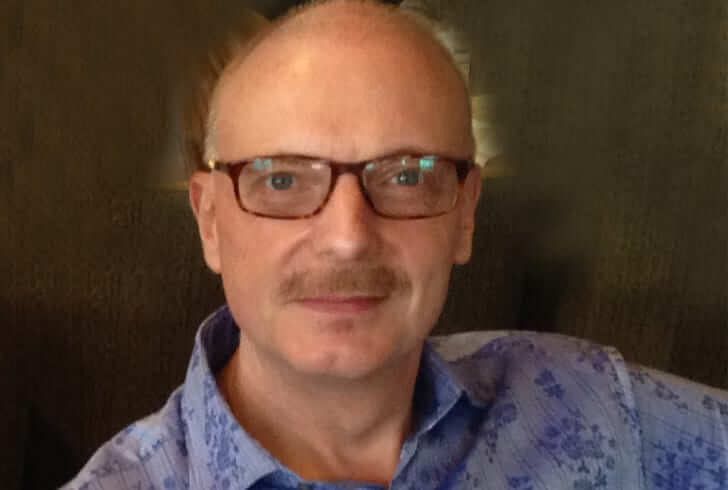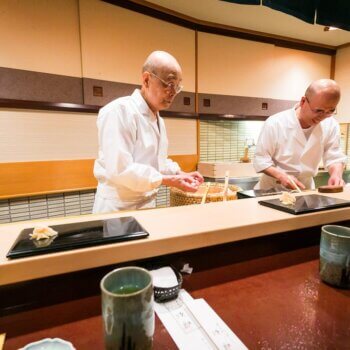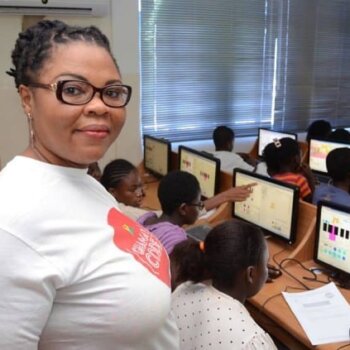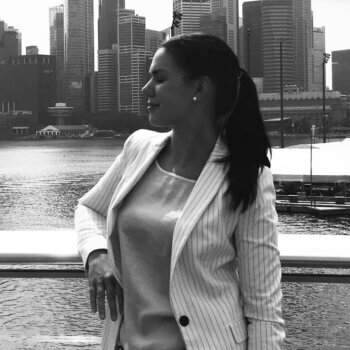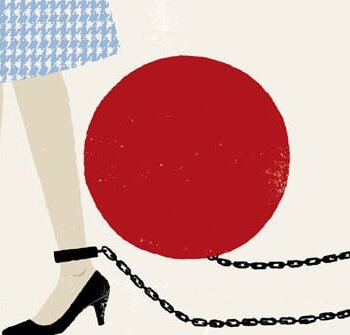What’s your story?
I came to Bangkok more than twenty years ago to work with UNESCO. We were developing educational programmes in the region in non-formal education, literacy, and adult education. It was an exciting and challenging job, though in the end I felt I’d like to do my own thing rather than working within an international bureaucracy – which is very bureaucratic..
When the Internet started to develop in the late 1990s, I decided to start a contemporary art gallery online and physically at the same time, having been a collector myself. It became the first ‘internet gallery’ in Thailand, and surely one of the first galleries in Asia with an online presence, in 1998. I remember the first painting we sold online to a client in the USA who had not come to the gallery but bought it from viewing a photo on the website.
What excites you most about your industry?
Contemporary art is exciting in the way that you meet lots of interesting people; artists from different countries who often have highly interesting personalities. On the other hand you also meet many interesting clients and collectors. The work is varied and never boring.
What’s your connection to Asia?
<see first question/answer above>
Favourite city in Asia for business and why?
I have lived in Bangkok since I first settled down in Asia, and this is my favourite city to stay in. Few other cities can beat Bangkok in terms of diversity, contrasts and good food! It is not a cheap city anymore, but it is one of the most liveable cities, I think. Singapore and Hong Kong are supposedly good for business, though they seem somewhat boring compared to Bangkok. I often travel to Yangon and Hanoi to interact with artists and they are some of my favourite cities to visit.
What’s the best piece of advice you ever received?
Follow your dreams. The future is uncertain so it is hard to plan accurately. Often life is a zigzag path and you have to make the best out of it.
Who inspires you?
Personally I look up to great personalities such as Desmond Tutu and Dalai Lama. They maintain their integrity and humor in all kinds of situations. In the art world, I find the amazing lacquer paintings by Vietnamese artists quite inspiring: Dinh Quan, Truong Tan, Trinh Tuan and Le Quang Ha.
What have you just learnt recently that blew you away?
The apps that you can download and use on your mobile phones. There are so many, and for every imaginable purpose. I decided to produce an app for the gallery and we’re probably the first gallery in Asia with an iPhone/iPad app.
Since Bangkok is a world class food city, I also decided to develop a restaurant app for iPhone, which is called: ‘Bangkok’s 100 Best Restaurants’. It is useful to have all the restaurant details at your fingertips rather than carrying a guide book around. It seems to be the future.
If you had your time again, what would you do differently?
I don’t think I would have done things differently. I started my career in sciences (biology), moved on to education (UNESCO) and then art (Thavibu Gallery). I have lived and worked in Europe (Norway), Africa (Tanzania) and Asia (Thailand). Thus, I have covered many fields and have had a broad range of experiences.
How do you unwind?
I always find going to the beach in Thailand can help you unwind. You can find some of the world’s best beaches here, like in Phuket and Krabi, though a nearby place is Kho Samet island. At home listening to classical music, in particular Bach, makes me wind down or sometimes the opposite – but both ways it is rewarding.
Favourite Asian destination for relaxation? Why?
Since I live in Thailand, I am biased. Other really amazing destinations I have been to several times are Bali and Nepal. They are just magical places – but who knows for how long. These places have changed a lot during the last few years, and not for the better.
Everyone in business should read this book:
<sorry….but I don’t have a recommendation really>
Shameless plug for your business:
After a boom in Chinese and Indian contemporary art, the focus in Asia is now shifting to Southeast Asia, and top art works here are still very reasonable.
How can people connect with you?
Feel free to browse our website of top quality contemporary art from Thailand, Vietnam and Burma/Myanmar at www.thavibu.com. The gallery also has a Facebook page, and Instagram and Twitter accounts.
Twitter handle?
@thavibu
—
This interview was part of the Callum Connect’s column found on The Asian Entrepreneur:
Callum Laing has started, built, bought and sold half a dozen businesses in a range of industries across two continents. He is the owner of Fitness-Buffet a company delivering employee wellness solutions in 11 countries and he is also the CEO of Entrevo Asia, a company that runs 40 week Growth Accelerator programs.
Take the ‘Key Person of Influence’ scorecard <http://www.keypersonofinfluence.com/scorecard/>
Connect with Callum here:
twitter.com/laingcallum
linkedin.com/in/callumlaing
Get his free ‘Asia Snapshot’ report from www.callumlaing.com
